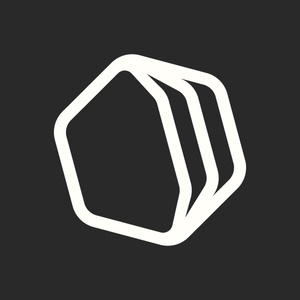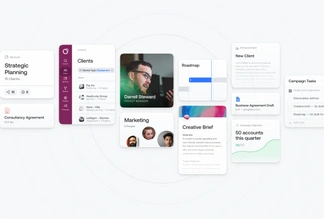
Qatalog and GitLab study reveals pervasive culture of digital presenteeism
- Workers waste an extra 67 minutes online each day due to ‘digital presenteeism’ pressures
- Async privilege is prevalent, with 74% of C-suite execs able to work on their own timetable, compared to 24% of junior staff
- An overwhelming majority (81%) believe they are more productive and create high-quality output when they have more flexibility over when they work
London and San Francisco, July 19, 2022 — Damaging habits from the office have been imported into remote work, with a pervasive culture of digital presenteeism taking hold accrding to a new report, Killing Time at Work, from Qatalog, the digital Work Hub, and GitLab Inc, the provider of The One DevOps Platform.
The research also reveals a new phenomenon dubbed ‘async privilege’, with C-suite execs taking advantage of new freedoms to work on their own schedule, but not providing those same opportunities to junior members of staff.
Digital presenteeism runs rampant - costing time and hurting productivity
With the rapid rise of remote and hybrid work, many managers can no longer see their team physically present in the office. Knowledge workers are now worried their work won’t be recognized, with more than half (54%) saying they feel pressure to show colleagues and managers that they are online and working during certain times of the day.
In many cases, this also means working extra hours. On average, workers said they spend an additional 67 minutes each day (on top of their regular working hours) making sure they are visibly online at work, equivalent to more than 5.5 hours each week.
This culture of presenteeism likely comes from the top, with 63% of workers holding the view that management and senior leadership within their organization ‘prefer a traditional culture with employees in the office’. Another 54% also said their colleagues are stuck in old habits, making it hard to shift to asynchronous working.
Bosses' tendency toward presenteeism is likely to be counterproductive, with an overwhelming majority of people (81%) saying they are ‘more productive and create higher quality output when they have more flexibility over when they work’.
Async privilege - Flexibility is not trickling down
Despite the proclamations of a ‘new way of working', only a third (33%) of knowledge workers said they work asynchronously* ‘Often or Always’, indicating that the ‘9-5’ is still a reality for many, even if they are working remotely. However, the figures also revealed a startling difference between senior and junior members of staff.
Almost three quarters (74%) of those in the C-Suite said they work asynchronously ‘Often’ or ‘Always’, compared to 48% of those at Vice President or Director level, 32% of those at a Manager or Consultant level, and 24% of those in Analyst or Administrative roles.
Tariq Rauf, founder and CEO of Qatalog, said:
“The pandemic gave us a once-in-a-lifetime opportunity to reshape our working lives and cast aside vestiges we learned in the office era, yet it’s clear that we are repeating the same mistakes. Workers are desperate to avoid suspicion that they aren’t working hard enough, and they’re falling back on the same habits of presenteeism, adapted for the digital workplace. The costs are huge, resulting in unhappy, burnt-out employees, reduced retention, and lost productivity.
“In stark contrast, C-Suite execs know they can work on their own schedule, without fear of questions from their team. That’s why we’ve seen this new system of privilege emerge, where senior staff feel empowered to work asynchronously, while not extending the same freedom and flexibility to their team members. There’s no excuse for such an enormous disparity, and business leaders need to make much more effort to build a culture and provide the tools that enable asynchronous work for all.”
Darren Murph, Head of Remote at GitLab, said:
“Presenteeism was never a great way to measure the results of a business. In the post-pandemic world, with the rise of remote and distributed teams, there’s no such thing as showing up or clocking out. Work can happen as the sun turns, and the best leaders will reward results over hours. You do that by giving people agency and autonomy by default and coaching the skills to achieve their goals. This paradigm shift will define the workplace of the future.”
Technology is a double-edged sword
While technology made remote and asynchronous work possible, it also facilitates digital presenteeism, with workers finding a host of ways to show colleagues they are still present in the digital workplace, from sending emails or messages, to adding comments on Google Docs.
How workers signal to colleagues they are online and working:
- Send or reply to emails - 70%
- Send or reply to messages on messaging applications - 53%
- Set my status on Slack or Teams to ‘Active’ - 52%
- Joining team video calls - 51%
- Adding or replying to comments on document editing tools - 29%
- Updating shared project/task management tools - 23%
- Sending emoji/GIF reactions on messaging applications - 22%
Knowledge workers are also contending with a barrage of notifications, making it hard to switch off. On average, workers now receive notifications from six different applications, and almost three-quarters (73%) said they reply to these notifications outside of their working hours, with 30% saying they do this every day.
A key battleground in the war for talent
Flexibility to choose your working hours has quickly become one of the key battlegrounds for attracting and retaining talent. Two-thirds (66%) of workers said they would resign from a job if flexibility was limited, and 43% indicated they would consider a lower-paid role if it gave them greater flexibility over their hours.
This should be no surprise considering the improvements to quality of life that it can bring. Three-quarters (74%) of workers said increased flexibility over when they work had allowed them to spend more time on hobbies, volunteering, or side hustles. In addition, among workers who said they work asynchronously ‘Often’ or ‘Always’, 65% said this had a positive impact on their wellbeing, compared to just 6% who said it had a negative impact.
Tariq Rauf added:
“For centuries, our daily lives have been built around the traditional working day, but this will soon become another relic of the past. The 9-5 is dead, and businesses will have to adapt to this new reality or die because the best talent wants and expects it.
“There are enormous benefits to working asynchronously for businesses, too. It provides people with the space and time to do ‘deep work’ without constant distractions and, in a world of distributed teams working across different continents and time zones, it is fast becoming an essential collaboration method to ensure people can work effectively and efficiently.
“Technology has clearly got a part to play in making this possible, but it needs a radical redesign that is more considerate of the user and prioritizes their objectives, rather than simply capturing our attention. To enable this async world, we need to disable all our sync habits - and thoughtful technology is the way to achieve that. If we can get this all right, the future of work starts to look much brighter.”
-Ends-
Notes to editors:
- In the survey, asynchronous or async work was defined as “when people work during different times of the day, without the expectation of immediately responding to others, allowing employees to get work done at a time that suits them”. Survey respondents were provided with a definition at the relevant point in the survey.
About the study
This study was conducted in partnership with GitLab. 2,000 knowledge workers participated in the survey – 1,000 in the US and 1,000 in the UK. For the purposes of this study, “knowledge worker” was defined as someone who works predominantly from home, an office, a co-working space, or a combination of these, and uses a computer or laptop more than 50% of the time to carry out their work. The research was carried out by Attest between 19-21 March 2022.
Press contacts:
Qatalog - Sam Ferris / [email protected]
GitLab - Kristi Piechnik / [email protected]
About Qatalog
Qatalog is an entirely new paradigm of software for work, enabling high-performance teams to coordinate effectively. Its Work Hub is built around people, teams, and the bespoke needs of a business, and provides a single source of truth that makes work structured, accessible, fast, and efficient. Founded in 2019, Qatalog has raised $18.5m in venture funding from backers including Atomico, Mosaic, and Salesforce Ventures.
About GitLab
GitLab is The One DevOps platform for software innovation. As The One DevOps Platform, GitLab provides one interface, one data store, one permissions model, one value stream, one set of reports, one spot to secure your code, one location to deploy to any cloud, and one place for everyone to contribute. The platform is the only true cloud-agnostic end-to-end DevOps platform that brings together all DevOps capabilities in one place.
With GitLab, organizations can create, deliver, and manage code quickly and continuously to translate business vision into reality. GitLab empowers customers and users to innovate faster, scale more easily, and serve and retain customers more effectively. Built on Open Source, GitLab works alongside its growing community, which is composed of thousands of developers and millions of users, to continuously deliver new DevOps innovations.



